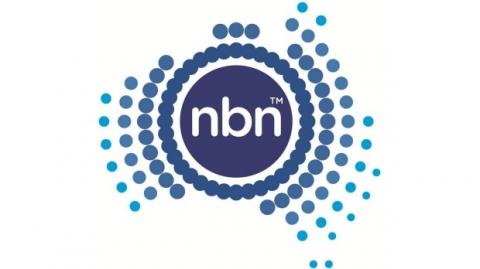Backhaul prices are too high and capacity is being drip fed onto the market to ensure prices remain high. Tasmanians suffer a regulated backhaul regime and there appears to be no light on the horizon. The telecommunication industry's history of backhaul cherry picking is discussed today in Business Spectator. Should NBN Co be held hostage by an industry that knows that NBN Co has no option but to pay and pay and pay?
Read the article here
Last week a Competitive Carriers Coalition spokesman stated that “NBN Co has no place in competitive backhaul markets and never will”.
The CCC, which includes Vodafone Hutchison, iiNet, Macquarie Telecom and other non-dominant telcos, is treading on thin ice when it opposes NBN Co’s search for greater efficiency and lower costs, without which NBN Co may struggle to offer retail service providers with products at lower prices.
For the CCC to argue that backhaul markets are competitive is one bridge too far and goes to the heart of the Australian telecommunication industry’s woes.
What is the point of having a national wholesale-only access network that provides open access broadband to all Australians if the cost of backhaul, traffic between RSPs and international traffic remains unsustainably high?
Backhaul remains the weak link
In an article in Business Spectator on September 17 last year, backhaul was highlighted as the NBN’s weak link even with the completion of the government’s $250 million Regional Backbone Blackspots Program that aimed to provide backhaul competition to regions that were previously reliant on Telstra’s national fibre network or remained backhaul “black spots".
The RBBP had a significant, positive effect with backhaul costs dropping. But what about regions that met the guideline set by the Australian Competition and Consumer Commission that NBN Co’s Points of Interconnect (PoI) should be connected to at least two backhaul providers?
Tasmania remains a digital black spot because no RBBP link was built to the state, mainly because of the existing backhaul links that are owned by Telstra and Basslink Telecom.
In February this year, TASICT executive officer Dean Winter stated that “the higher cost of data transmission across Bass Strait is between 200 and 300 per cent higher than the cost of transmitting data between Sydney and Melbourne".
The Tasmanian ICT industry peak body “welcomed the Labor commitment to include data transmission in the proposed Bass Strait feasibility study” to be conducted after the March Tasmanian election. It's assumed that the incoming Coalition Tasmanian government’s pre-election support for the Bass Strait feasibility study will also extend to data transmission capability.
But even if more data transmission capacity is added with a second Basslink, the ACCC will still be called on to regulate the backhaul data transmission cost to Tasmania because only two backhaul providers connect to NBN Co’s Tasmanian PoI.
And as NBN Co has found, the cost of backhaul to PoI that has three or more backhaul providers remains high and remarkably similar to the regulated price set by the ACCC for backhaul to PoI with two backhaul providers.
There would be nothing untoward in this price movement except that the ACCC is setting the backhaul price to locations on the far side of the nation or on the other side of the Bass Strait.
Backhaul cherry-picking
The Australian telecommunications industry has a long history of cherry-picking. The most recent example of this has brought TPG condemnation from all and sundry, but is TPG the villain or merely one company doing what the industry has done for decades? For Australian consumers an industry claim that competition must be defended is akin to a fox getting into the hen house.
Have you ever asked the $64 question: Why was the so-called loophole being exploited by TPG in the legislation in the first place? The answer lies with the previous government placating the big telcos that did not want their “right” to continue cherry-picking business customers in central business districts being curbed by the NBN rollout.
So what's different about backhaul? We know that backhaul charges in Australia are way over margin. The ACCC appears to be struggling to curb excessive industry claims, which results in backhaul charges being far higher than reasonable, while capacity increases are drip-fed onto the market to ensure prices remain high.
In March last year the ACCC agreed to a Telstra request for the ADSL2+ aggregating virtual circuit (AGVC) fee to increase from $33.65 per Mbps to $36.08 per Mbps in 2013-14. iTnews reported on March 15 last year that the AGVC fee increase was considered to be a congestion charge by some in the telecommunications industry.
CCC members along with Optus were scathing in their response to Telstra’s proposal, and clearly indicated that the backhaul market was anything but competitive and that they were being held to ransom by the largest backhaul provider. So what has changed now for the CCC to argue that the backhaul market is competitive and NBN Co should remain a consumer of overpriced and congested backhaul?
iiNet (a member of the CCC) chief regulatory officer Steve Dalby told iTnews: "They [the ACCC] talk about it not being reasonable to introduce a congestion charge, and yet what they've done is increase the charges for AGVC along the lines of what you would describe as a congestion charge."
Macquarie Telecom, also a member of the CCC, argued that "Telstra's submissions concerning congestion pricing to the ACCC are clear evidence of Telstra gaming the ACCC's inquiry process".
In its submission to the ACCC, Optus put the argument that “such positioning appears to reflect an element of regulatory gaming -- on the one hand providing adequate capacity to some access seekers; while claiming inadequate capacity for other access seekers relying on regulated access".
The telecommunications industry has a short memory, but politicians and the Vertigan panel do not and they will be looking with some sympathy at NBN Co’s plight and the failure of the telecommunication industry to increase backhaul capacity at a rate needed to ensure consumer data usage growth continues unabated and unaffected by unreasonable congestion.
Revisiting the number and location of PoI
In arguing for more than the original NBN Co proposal to have 14 PoI, it was not anticipated that the ACCC would go to the other extreme and identify 121 PoI. The excessive number of PoI forced onto NBN Co has made NBN Co captive to the backhaul market and the result has been another cherry picking gold rush.
An ACCC media release this month states “The CCC has always been very clear that separating the monopoly access network was a means of promoting competition where it can thrive, both the retail and the wholesale backhaul market.”
But the backhaul market is not competitive, it is in part regulated and by the very nature of that act the market becomes skewed towards backhaul charges that are higher than they should be in both the regulated portion and the unregulated “competitive” portion.
It's time for the ACCC to revisit the number and location of PoI and significantly reduce the backhaul burden faced by NBN Co. Unwittingly the ACCC is a significant bit player in the pantomime that has resulted in Australians paying unreasonably high telecommunication costs.
NBN Co’s fight for survival
NBN Co’s submission (pdf) to the panel led by Michael Vertigan conducting the Cost-Benefit Analysis and Review of Regulation highlighted the concern that infrastructure competition would necessitate NBN Co being given more freedom to manoeuvre and for the panel to reflect on “the appropriateness of the entire regulatory framework that governs NBN Co” if infrastructure-based competition is allowed.
What this means is the need for the industry to accept once and for all that NBN Co should be able to build an open wholesale access network and cherry-picking must end, that includes cherry-picking by companies with fibre networks offering FTTB or business connections, companies providing backhaul and so on.
The alternative is for NBN Co to have the number of PoI reduced to between 30-60 and for NBN Co to be able to enter into markets previously off-limits, including wholesale access network connections to trains, planes, trucks, boats and caravans, and to offer wholesale access network products utilising mobile cellular and Wi-Fi.
Australians are being ripped off and there can be no justification for $43bn to be spent building a national open wholesale access network and then to limit what wholesale access products can be provided just to prop up telcos that continue to cherry-pick and price gouge.
The Australian telecommunication industry’s gaming of the backhaul market clearly demonstrates the failure by this industry to move beyond short-term thinking and unacceptably high profits. It's time for the Coalition and the Vertigan panel to take a big stick to the industry’s backhaul practices and fees.





